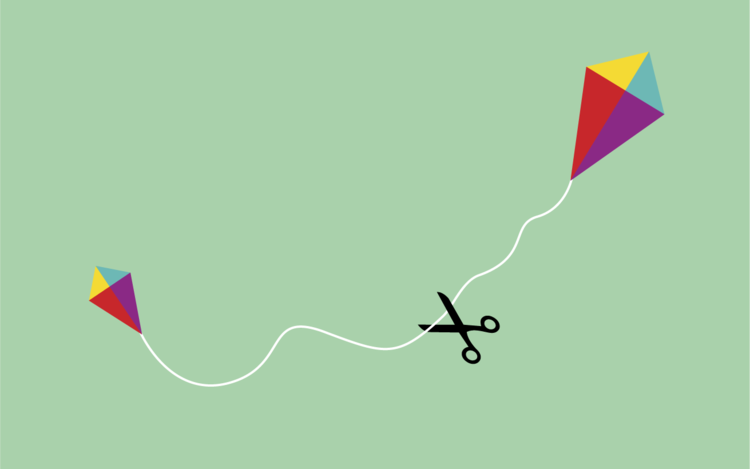A real fear of a child of being away from mother or father.
Separation anxiety is a normal stage of children’s emotional development. It shows that your baby has a strong attachment to one of the parents. But at the same time it is quite distressing for all who experience it – both for parent and child.
Try to keep in mind that this phase is temporary and that every child will express anxiety in a different way. If your child has never received any other care except yours, if he/she is shy or if there are other stressful situations, such as childbirth or health problems, this phase will be more intense compared to other children.

There are two types of separation anxiety according to the age: one type reaches its peak around 8 months and then again around 18 months. At these stages child’s anxiety comes from real fear that he/she is far from a parent – mainly from the parent with whom primary relationships have been established – usually mother.
But there is also another type – when children are afraid because they are away from something familiar which provides them with leisure and entertainment, such as people they love or toys they have to part with to go to bed.
- Actually, separation is healthy, as, for example, at sleep time, when child’s anxiety can be expressed with extra attachment, as well as with continuous crying. This is the most common reason behind separation anxiety at the period of 8-9 months.
- At this period babies have not fully acquired the sense of permanence of οbjects, i.e. the sense that when someone leaves, and we do not see him/her, this person may turn back again. For this reason, when you leave your child in the bedroom to sleep at this age, he/she believes that you will never return, and this is especially distressing.
At 18 months the second phase of separation anxiety appears; at this time difficulties with sleep often reappear. It is stressful enough for your child when you leave. Although the child has developed the sense of permanence of objects (namely, of the important people in his life), he/she still does not want you to distance yourself far from him/her in the evenings, mainly because you are the most important source of tranquility for the child as he/she is trying to sleep.
Several ways to ease separation anxiety:
- Consistency is the key. Create daily routine in order that your child could know what to expect. In this way he/she will feel safer.
- Filter your reactions: anxiety, impatience, anger and disappointment – these reactions will even worsen your child’s feelings, because he/she will feel that sleep time is not a calm moment.
- Soft objects usually ease separation anxiety at night. Give the child something he/she can hold to relax. Such contact with an object will definitely calm him/her down. For example, warm up a stuffed animal or a blanket in the dryer for few minutes.
- Also, avoid starting nursery attendance or assigning childcare to unfamiliar people between the ages of 8 months and 1 year, since at this period separation anxiety is very likely to appear for the first time. Besides, when you need to leave home, do it after sleep. Even when the time comes for the child to go for the first time to nursery or to kindergarten, visit at first this place for a few times together.
- When you need to leave your child, his/her anxiety can be expressed with sudden attachment or also with crying. In these cases do not try to leave slowly, so that he/she might not notice it. Such behavior may cause more stress and child’s insecurity. On the contrary, say goodbye briefly, but demonstrating your love (for example, with a kiss or with a short embrace), even if your child is crying or shouting. It is important that you stay calm, and your “goodbye” is firm, and you calm down your baby with love and with a promise to return. If your child is older, explain what time you will come to him/her, using the notions he/she will understand, such as, let us say, “after meal” or “after you wake up”.
- At this age phase it is also good for you to know that your child needs gradual contact with people and places. For example, if you need to be absent and to leave your child with someone unknown to him/her, even with a relative, to look after him/her, it will be useful that the child comes into contact with this person beforehand. Let this person visit you at first in order to be able to spend some time with the child in your presence.
- Generally, socializing is good for child. In this way stress he/she feels in relation to strangers decreases gradually. Anxiety, which is demonstrated by your child in these cases, is also a natural stage of his/her development. For that, when it appears you do need to remember not to worry further.
Finally, remember that the anxiety your child experiences demonstrates signs of his/her natural development. In other words, it is clear evidence that his/her cognitive skills develop in a natural way.
